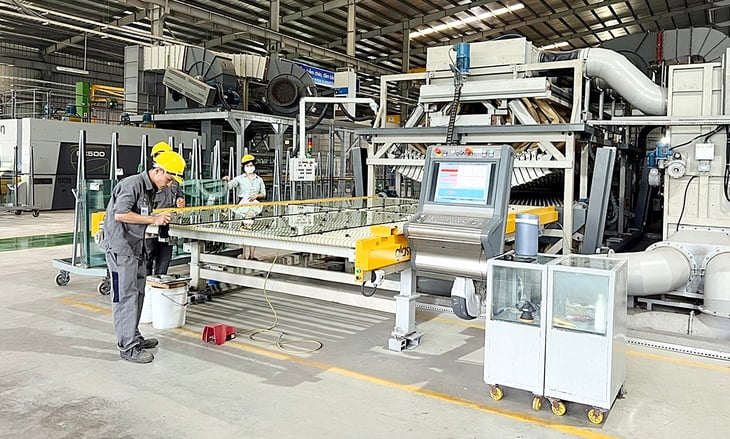
Experts say it is necessary to monitor the process of cutting administrative procedures to improve the business investment environment in Vietnam - Photo: DINH PHUC
Before the 9th session (15th National Assembly ), a collective petition of 10 associations and industry associations was sent to General Secretary To Lam, pointing out the inadequacies in the regulations on product conformity declaration that have caused many difficulties and troubles for people and businesses for nearly 20 years.
With many management contents no longer suitable, continuously reflected and proposed for amendment over the past 5 years... but everything remains the same.
Petition for 5 years...
Speaking with Tuoi Tre, Mr. Nguyen Xuan Duong, Chairman of the Vietnam Animal Husbandry Association, said the recommendations have been noted by the General Secretary and the National Assembly, and the ministries and branches have been directed to listen and make amendments.
And the shortcomings have been absorbed and amended in the Law amending and supplementing a number of articles of the Law on Technical Standards and Regulations, which was just approved by the National Assembly at its 9th session.
Accordingly, management work is changed, based on analysis and classification of groups of goods according to risk level, moving from pre-control to post-control. Goods are classified into low risk, medium risk and high risk, accordingly there will be appropriate management methods at each level.
The Law also strongly decentralizes the Government to issue decrees detailing and classifying goods according to risk levels, so that ministries, branches and localities can have appropriate management measures, meet management requirements and create favorable conditions for production and business activities of people and enterprises.
"However, until now, businesses are still being managed by old regulations, costs and shortcomings still exist. We hope that the guiding decrees and circulars must adhere to the spirit of the law. Only then can we substantially cut administrative procedures and reduce costs for businesses in accordance with the direction of the General Secretary and Prime Minister in Resolution 68," Mr. Duong hoped.
According to Mr. Duong, the regulations on product conformity declaration and product circulation registration under the old law are one of the complicated, difficult and costly administrative procedures for businesses.
After 20 years of promulgation and implementation, these regulations have increasingly revealed many shortcomings compared to the development of the production and management industry.
Specifically, according to the old regulations, goods were classified into group 1 (no toxic elements) and group 2 (with toxic elements), but most products were put into group 2 for inspection before being circulated on the market, causing "overload" for management agencies and increasing costs for businesses, and product prices were increased.
In particular, 100% of imported products must be sampled for analysis and declaration of conformity. "Meanwhile, for each animal feed or veterinary medicine product, the average cost to take samples for analysis and declaration of conformity is about 5-7 million VND, some products (such as vaccines) cost up to 20-30 million VND, the cost of the product is increased a lot, reducing the competitiveness of enterprises," said Mr. Duong.
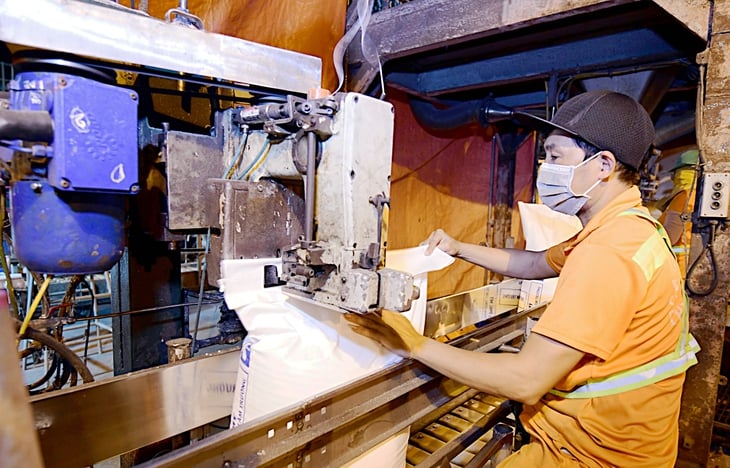
Many industries that have to register for conformity with standards and regulations face difficulties, hoping to soon amend and simplify the process - Photo: QUANG DINH
"Both funny and sad" with many ironic regulations
Mr. Nguyen Minh Duc, legal expert of the US-ASEAN Business Council (USABC), said that many inappropriate regulations still exist in legal documents, causing unnecessary obstacles to the production and business activities of enterprises.
Recounting the "half-laughing, half-crying" situation, Mr. Duc said that some colleagues working for foreign units and organizations complained when they were given foreign bank cards to serve their work, but when they sent express mail to Vietnam, they were "stuck".
Because bank cards are considered civil cryptographic products and according to the provisions of the Law on Network Information Security 2015, all types of civil cryptographic products must have an import license.
The unreasonable thing is that the law only grants import licenses to enterprises with civil cryptography business licenses.
"Therefore, cases of import for non-commercial purposes cannot be carried out. Therefore, it is very difficult for enterprises to import sample products for the purposes of research, testing, display, product introduction, personal consumption, and internal use," said Mr. Duc.
Due to this inconvenience, businesses are forced to hire a licensed unit to import on their behalf or carry the goods into Vietnam by hand.
So, the paradox is that sending a bank card by express mail is not allowed, but carrying dozens of cards in hand luggage does not need to be declared and no one checks.
Or with mobile devices, according to international practice, authorities will check to ensure that lithium batteries do not overheat and cause fire or explosion.
However, according to current regulations in Vietnam, lithium batteries must also be tested for fast or slow charging, mobile phones must be tested for good or poor signal reception...!
In fact, not only testing under normal conditions but also under extreme conditions such as super cold or super hot. At first, Vietnam did not have a testing room to do this, so the goods had to be brought abroad for testing, the waiting time was long, causing congestion.
"Although Vietnam has a testing lab, the cost is very high. But the important thing is that these are not safety indicators, but the quality of the product, whether it is high-end or low-end. This is a market problem, not a State problem," said Mr. Duc.
Don't let ministries "both play football and blow the whistle"
As someone who has always been concerned with institutional reform, cutting administrative procedures and business conditions for many years, Mr. Phan Duc Hieu, member of the National Assembly's Economic and Financial Committee, said that efforts to reform institutions and the economy have achieved very positive results.
However, much remains to be done, especially in maintaining the momentum and effectiveness of the institutional reform process.
According to Mr. Hieu, the biggest challenge is that almost all previous reforms came from the Government's determination, while ministries and branches rarely proactively propose reforms or abolish business conditions under their management.
Practice shows that if the legal system is of poor quality, it will create adverse impacts on production and business activities, reducing the competitiveness and dynamism of enterprises and the economy.
These are high legal compliance costs, create additional risks, limit creativity, dynamism or distort competition, and are disadvantages for small and medium-sized enterprises.
"Therefore, reform needs to be substantial, proactive and exceed the expectations of businesses, such as the story of the promulgation of the Enterprise Law in 2000, with the significant reduction of cumbersome administrative procedures and inappropriate regulations, creating a boom in business establishment in Vietnam, encouraging the entrepreneurial spirit," said Mr. Hieu.
According to Mr. Hieu, institutional reform should be considered a regular, continuous process with no end point. Regulations that are reasonable today but no longer suitable tomorrow need to be abolished or revised.
But without top-down pressure, where would the impetus for regular, ongoing reform come from?
As a delegate who has repeatedly expressed his views in the National Assembly, Mr. Hieu believes that it is necessary to soon have an independent professional working group of the Prime Minister to independently review overlapping and inappropriate regulations, and move towards establishing an Institutional Reform Committee so that this task can be carried out regularly.
From his many years of experience working in legal affairs at VCCI and USABC, Mr. Nguyen Minh Duc believes that there is still a lot of room to cut administrative procedures and improve the investment and business environment in Vietnam.
However, from practical experience in building and drafting many contents of comments on amending legal regulations, the prerequisite is to innovate the way of doing things.
"In my opinion, the task of proposing to reduce administrative procedures should not be assigned to the ministries, agencies that have drafted or are implementing the administrative procedures. Because this mechanism of "both playing football and blowing the whistle" has been implemented for the past few years and has not been effective," said Mr. Duc.
Need to consult independent experts
To cut administrative procedures and improve the business investment environment, Mr. Nguyen Minh Duc said that there needs to be a team of experts with enough independence and resources to point out the shortcomings of Vietnam's business environment.
Accordingly, information from enterprises can be a good source of input but is not enough, because enterprises often follow habits and rarely argue against the necessity of procedures. Some enterprises even benefit because administrative procedures help eliminate competitors.
"The best method to evaluate administrative procedures is still the cost-benefit method and based on risk management," Mr. Duc suggested.
Tighten "pre-control" but neglect "post-control"
According to Mr. Nguyen Xuan Duong, if the average cost to take samples for analysis and declaration of conformity is about 5 - 7 million VND, each factory produces 300 - 500 products, the enterprise has to spend about 1.5 billion VND just to do the procedures to declare conformity.
This also means that thousands of billions of dong of enterprises are spent to implement this regulation, creating a burden not only for enterprises but also for farmers and end consumers.
Not to mention, the time to announce product conformity takes about 10 days on average, wasting time and business opportunities for enterprises.
"Especially the regulation on pre-inspection management - tightening input but neglecting post-inspection, causing many products when first entering the market to have unnecessary inspection and control costs, increasing costs, while the output products are of poor quality, causing incidents such as fake milk, fake medicine, fake food... in recent times," Mr. Duong said.
Source: https://tuoitre.vn/go-vuong-mac-the-che-khoi-thong-nguon-luc-ky-1-nhung-quy-dinh-dot-tien-doanh-nghiep-20251011080730169.htm


![[Photo] Discover unique experiences at the first World Cultural Festival](https://vphoto.vietnam.vn/thumb/1200x675/vietnam/resource/IMAGE/2025/10/11/1760198064937_le-hoi-van-hoa-4199-3623-jpg.webp)





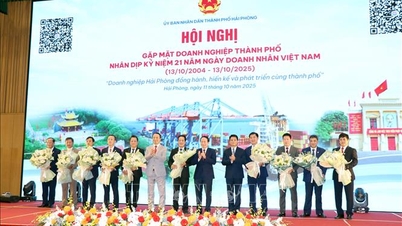




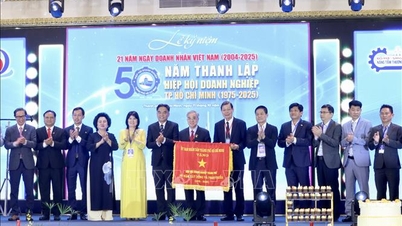
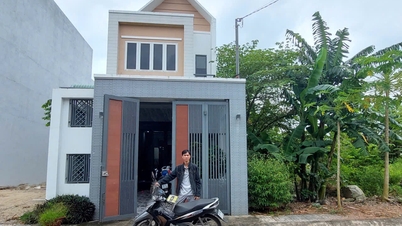





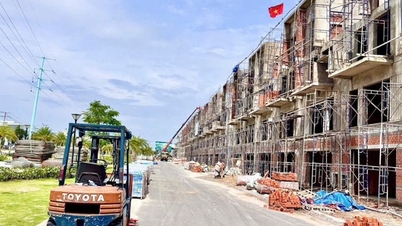



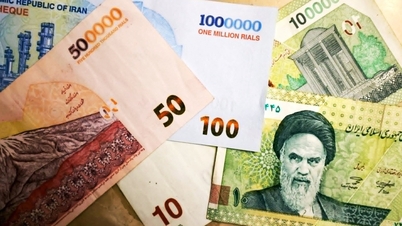










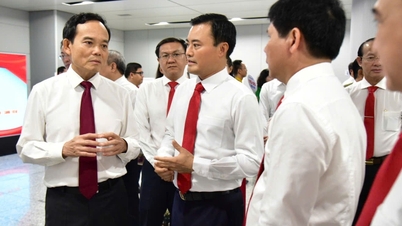

![[Photo] General Secretary attends the parade to celebrate the 80th anniversary of the founding of the Korean Workers' Party](https://vphoto.vietnam.vn/thumb/1200x675/vietnam/resource/IMAGE/2025/10/11/1760150039564_vna-potal-tong-bi-thu-du-le-duyet-binh-ky-niem-80-nam-thanh-lap-dang-lao-dong-trieu-tien-8331994-jpg.webp)





















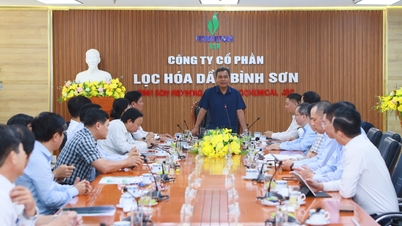











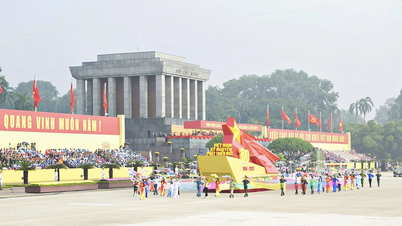




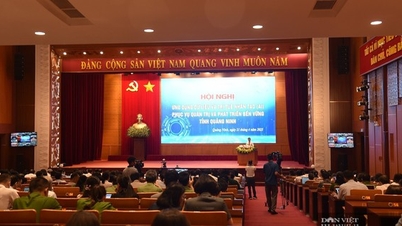

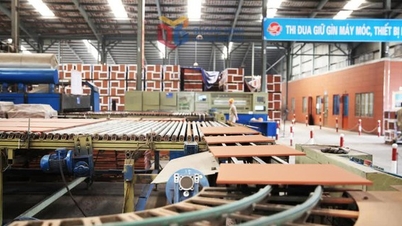
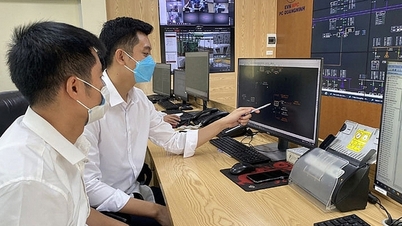
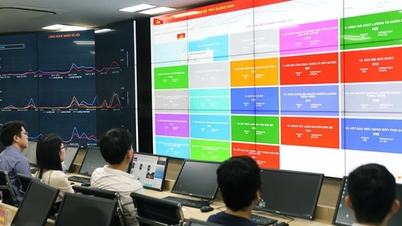
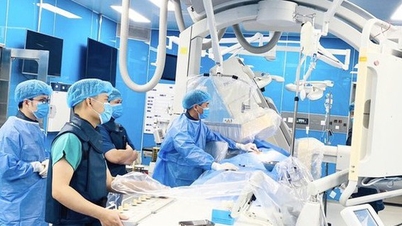

























Comment (0)